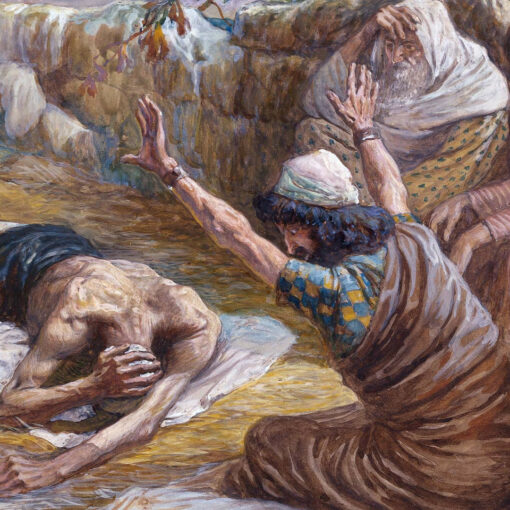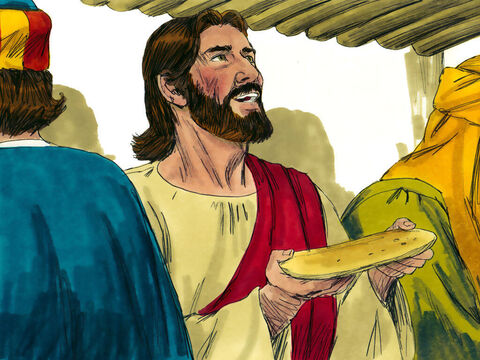An old hymn begins with the lyric, “Faith of our fathers, living still, in spite of dungeon, fire, and sword, o how our hearts beat high with joy, whene’er we hear that glorious word!” I am thankful to have had a Christian grandfather. Papa(w), as I called him, was a Baptist minister. Two things I never doubted about him was that he loved Jesus and that he loved me. I am also grateful to have a Christian father. Daddy, as I still call him though I’m now 29 (plus a few!) and he’s 29 ½ (plus a few more!), has fixed, without complaint or charge, tons of things that I either broke or failed to maintain. Folks may think I’m kidding around when I say that when something doesn’t work I call 1-800-DAD, but I assure you it’s the truth! More importantly, my daddy was a big part of instilling in me a love for old hymns, even at a time in his life when he wasn’t following after the Lord. Thankfully, for more than a decade now, I have been privileged to know and serve Jesus alongside a dad who is dedicated to the purposes of Christ. I have been blessed to be a dad myself for over 8 years now and it is truly one of the most amazing joys and greatest responsibilities that I have ever known. Of all the things that I could pass on to my son as a heritage, there is none more important than that of faith in Christ as described in that grand old hymn and as I have seen in the lives of both my papa(w) and daddy. In this month’s newsletter we will look at three aspects of a genuine faith that we should strive to model before our children as manifested in the lives of The Fathers (The Patriarchs—Abraham, Isaac, and Jacob).
Abraham—Simple Faith (Gen. 12:1-4)…There’s a familiar story used to illustrate faith that you may have heard of before. It goes something like this. A man fell off a cliff. About halfway down the several hundred yard drop to certain doom, he happened to catch hold of a limb sticking out the side of the mountain. Thankful to have stopped his descent but recognizing that apart from external assistance he had only delayed the inevitable, the man cried out desperately and in high decibels, “is there anybody up there who can help me?” Much to his surprise, he immediately received a response. A loud and clear voice replied, “this is God speaking, let go of the limb and I will catch you and bring you to safety.” The man thought for a moment, strengthened his grip on the limb, and then yelled out even louder than before, “Is there anyone else up there who can help me?!”
The twelfth chapter of Genesis recounts to us the beginning of God’s choice of and dealings with a man named Abraham (though he was known as “Abram” at the time). Verses 1 to 3 tell of the Lord’s first communication with the man who would become known as the father of our faith (the Bible describes 7 times altogether that God spoke to Abraham—7 times in 100 years; from age 75 to 175). God promised to bless Abraham and commanded him to leave his homeland to go to a land that would be shown to him. Hebrews 11:8 makes it clear that Abraham did not even know where he was to go at the time, just simply that he was to leave. Imagine being in such a spot; commanded to go but not told where to go to. Going back to our opening illustration, it would be “worse” than falling off a cliff and being told by God to let go of the branch you were clinging on to, it would be more like being safe at the top of the mountain and being told by God to jump off the cliff! But jump he did! Verse 4 declares that Abraham “went forth as the LORD had spoken to him.” Abraham was not like a child who obeys out of ignorance. At 75 years of age he had lived long enough to know that the world was a dangerous place and that the unknown could be especially perilous. Yet he chose to move in faith instead of remaining in unbelief. As Warren Wiersbe, one of my favorite commentators, wisely writes, “faith is not believing in spite of evidence, it is obeying in spite of consequence.” It is interesting to juxtapose the “let us” mentality of the Tower of Babel builders in Genesis 11 with the simple faith of Abraham in Genesis 12. The former was a works based system that disobeyed God and believed in the greatness of man. It ended with the Lord showing who was boss as He dispersed the peoples and confused the languages. The latter was a grace based system that focused on the greatness of God, believing that He was good to His Word and that His commands were to be followed. It “ended” with Abraham believing God and having it accounted to him as righteousness (Gen. 15:6) and continues on to us today as a foreshadowing that salvation cannot come from the works of man’s hands but by grace alone, by faith alone, and by Jesus Christ alone (Eph. 2:8-10; Gal. 3:6; Rom. 4:3).
Isaac—Willing Sacrifice (Gen. 22:5-14)…I remember one time many years ago seeing, or perhaps better said hearing, a sister in the Lord (who will remain nameless) vacuuming the church. It wasn’t necessarily her job or responsibility, but it needed done. Someone else had made the mess. Someone else besides her was supposed to be cleaning it up but was negligent in their duties. So she took it upon herself to get it done. You could almost hear her irritable huffing and puffing over the running engine of the vacuum cleaner! You could certainly hear her verbal complaints of how this wasn’t fair and of how something needed to be done to eliminate this situation from happening in the future during the intervals when she had to move the vacuum cord from one wall plug to another. I would have gladly taken over the job (which is certainly how she was viewing it) from her but I was afraid I might get “swept” away in her anger (pun intended)! She sacrificed her time and performed a needed function, but it wasn’t a willing sacrifice with a righteous attitude. I’m fairly certain it will end up on the wood, hay, and stubble pile instead of the stack of gold, silver, and precious stones when it comes to the day of reward (1 Cor. 3:10-15).
The 22nd Chapter of Genesis tells us of the story of Abraham’s willingness to offer up his son Isaac as a sacrifice. God had promised that Abraham would be an exalted father of many. Yet 25 years passed between the giving of this promise and the birthing of the child (Abraham was 75 years old when he received the promise and was 100 years old when Isaac was born). As much as any father rejoices in the birth of his son, Abraham must have rejoiced all the more as he not only saw a natural baby born but also a divine promise fulfilled. Imagine then the shock and potential dismay that Abraham encountered when the Lord told him to sacrifice his only son (that’s what God called Isaac) on Mt. Moriah as a burnt offering. Still, even with the hardness and seemingly unreasonable nature of this command, nowhere does Scripture record that Abraham ever questioned the Word of God in this matter. He got the necessary provisions together and headed up the mountain with his son. This passage contains a number of meaningful correlations to the sacrifice of Christ that would occur nearly 2000 years later; however the point I want to focus on is the willingness of Isaac to be sacrificed. As he and his father walked up the mountain, Isaac looks at the provisions his dad has prepared for them to bring along and notices that they have everything except for the animal to be offered. So the son asked his father, “where is the lamb for the burnt offering?” Abraham responds by simply saying that, “God will provide for Himself the lamb for the burnt offering.” That was good enough for Isaac and the two continued walking on. At what moment it set into Isaac’s mind that he himself was going to be the sacrifice we don’t know, but it must have occurred to him at some point as he was bound and placed into position to be slain. Isaac’s age at the time is unknown but most think he was anywhere from late teens to as old as his late thirties (many rabbinical scholars projected that Isaac was 37 at the time basing it on the events of the next chapter in Genesis). Abraham was by now well over 100. Isaac surely could have tried to resist his father and likely would have prevailed. Isaac could have been screaming as the knife drew ever closer to taking his life. However, Scripture records neither struggle nor strife between the father and the son. Abraham was amazingly willing to sacrifice and Isaac was amazingly willing to be sacrificed. A glorious picture of the gospel indeed! Of course the sacrifice of Isaac was cut short; the sacrifice of Jesus went to full measure! And thanks be to God it was not a begrudging sacrifice, but a willing one with the power to save all who repent of sin and put their trust in Christ!
Jacob—Steadfast Endurance (Gen. 32:24-32)…Perhaps the most famous person to ever call Ft. Myers home was the great inventor Thomas Edison. His work gave us the light bulb, the phonograph, the movie camera and countless other modern conveniences that have become cornerstones to contemporary living. One of the last projects he endeavored to complete was to come up with a source of rubber that could be mass produced in the United States. If you visit his Winter Home as we did this past Christmas (if you decide to go, start saving now, tickets cost more than they used to!), you will find that right across the street from his residence was his lab. The famed inventor spent hour after hour after hour focusing on his work so he wanted his lab close to where he lived. In fact, Edison worked so much it might have been hard to tell whether his lab or his house would be more appropriately called his home! Rightly looked upon as a brilliant and innovative man, Edison would say that “genius is one percent inspiration and ninety-nine percent perspiration” and credited his success to diligence, focus, and the refusal to give up. Indeed, in a microwave world of short attention spans and 140 characters for a Tweet (someone who understands how to do that can enlighten me someday) we would do well to revisit the traits of focus and stick-to-it-iveness!
There were certainly many famous events in the life of Jacob (even beginning from birth), but perhaps the scene that rises to the top is recorded for us in the 32nd chapter of Genesis. Jacob was on his way back to the land of his fathers, and that would mean he would have to meet up again with his brother. Esau, the elder brother by just a few moments, had some 20 years before vowed to kill his younger sibling for deceiving their father Isaac into giving him the blessing that Esau wanted to claim for his own. Jacob was hoping the next sunrise would bring a day of reunion but feared the more likely possibility was that it would bring a day of reckoning. As night fell and Jacob was left alone there was a “man” who came and wrestled with him. This “man” was a heavenly being, perhaps an Angel of the Lord and, as many scholars think, maybe even a pre-incarnate appearance of the Lord Jesus Christ! The struggle lasted all night, but despite the long hours involved and even the sustaining of a limp inducing hip injury, Jacob steadfastly endured and would not let go until he received a blessing. In the course of the meeting Jacob confesses his real name when asked by the Angel of the Lord (the last time in Scripture he had been asked his name was when he lied to his father Isaac claiming to be his brother Esau—Gen. 27:19) and ends up having his named changed to Israel (“he who strives with God”) because he had wrestled with God and with men and had prevailed. Now certainly God could have seen to it that Jacob was overpowered at any moment, but the Lord doesn’t turn aside those who come to Him and rewards those who diligently seek His face (John 6:37; Hebrews 11:6). In years past Jacob thought he could bring about blessing by his own conniving; now he had come to know that true blessing only comes from God above (Gen. 31:42; James 1:17). This revelation kept him holding to the hand of the Lord with steadfast endurance. May we have the same revelation and follow in the same action come what may during our days and times!




